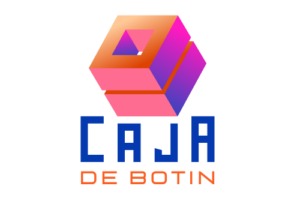The real estate sector is experiencing a significant transformation with the integration of cryptocurrency and blockchain technology. This innovation is redefining how investments are made, managed, and transacted in the property market. By harnessing the power of blockchain, real estate is stepping into a new era of transparency, efficiency, and accessibility.
Blockchain and Real Estate: A Synergistic Relationship

Blockchain technology offers a decentralized ledger that records all transactions across a network of computers. This technology in real estate brings numerous benefits. First, it enhances transparency in transactions. Every transaction on the blockchain is recorded and is visible to all parties, reducing the risk of fraud and errors. Second, blockchain streamlines the transaction process. Traditional real estate transactions involve multiple parties and steps, but blockchain simplifies this through smart contracts. These are self-executing contracts with the terms directly written into code, eliminating the need for intermediaries and reducing transaction times and costs. Tokenized real estate is something everyone should look into.
Cryptocurrency: A New Currency for Real Estate
Cryptocurrency, a digital or virtual form of currency using cryptography for security, is becoming increasingly popular in real estate transactions. It offers several advantages, such as lower transaction fees compared to traditional banking systems, and provides a level of anonymity. More importantly, cryptocurrencies can make real estate investments more accessible. People around the world can invest in properties without the need for currency exchange or the challenges of cross-border transactions.
Tokenization of Real Estate Assets
One of the most groundbreaking applications of blockchain in real estate is the tokenization of property assets. This involves dividing a property into digital tokens that represent a share of the real estate asset. These tokens can be bought and sold on blockchain platforms, allowing investors to buy fractions of properties, making real estate investment more accessible to a broader range of investors. This democratization of real estate investment opens up the market to those who previously could not afford to invest in property.
Smart Contracts and Their Impact

Smart contracts are revolutionizing the way we handle real estate transactions. These contracts automatically execute, control, or document legally relevant events according to the terms of a contract or an agreement. In real estate, this means automating processes such as property sales, lease agreements, and rental payments, thereby reducing the need for intermediaries like lawyers and brokers. This automation not only cuts down costs but also significantly reduces the time taken to complete real estate transactions.
Challenges and Risks
Despite the potential of blockchain and cryptocurrencies in real estate, there are challenges and risks. Regulatory uncertainty is a major challenge. The legal framework for using cryptocurrency in real estate is still evolving, and there’s a lack of uniformity in regulations across different jurisdictions. Another risk is market volatility. Cryptocurrencies are known for their price volatility, which can introduce financial risks in real estate transactions. Lastly, there’s the issue of technology adoption. The real estate sector is traditionally slow in adopting new technologies, and widespread adoption of blockchain and cryptocurrency is a gradual process.
Future Prospects and Innovations
Looking ahead, the future of real estate through blockchain and cryptocurrency holds immense potential. One of the key areas of innovation is in the use of blockchain for land registries and title management. Blockchain can provide a more secure and efficient system for recording and transferring property titles, reducing fraud and errors associated with traditional paper-based systems. Additionally, the integration of Internet of Things (IoT) with blockchain could further enhance property management, enabling smart buildings to function more efficiently and securely.
Global Impact and Accessibility

The global impact of blockchain and cryptocurrency in real estate cannot be overstated. In developing countries, blockchain technology can provide a reliable and transparent system for property rights, which is often a significant issue. This can aid in improving the investment climate and promoting economic development. Furthermore, the tokenization of real estate assets can give investors from all over the world access to properties in different markets, diversifying their investment portfolios and spreading risk.
Environmental Considerations
An important aspect to consider is the environmental impact of blockchain technology, particularly in relation to cryptocurrencies like Bitcoin, which are known for their high energy consumption. However, newer blockchain platforms are adopting more energy-efficient consensus mechanisms, such as proof-of-stake, which could mitigate these concerns.
Moreover, blockchain technology can also contribute to the real estate sector’s sustainability goals. For instance, blockchain could facilitate the trading of carbon credits or the implementation of green building initiatives by providing a transparent and verifiable way of tracking environmental impacts.
Educating Stakeholders
For the full potential of blockchain and cryptocurrency in real estate to be realized, educating stakeholders is crucial. This includes not only investors and real estate professionals but also regulators and policymakers. Understanding the technology, its benefits, and its risks is essential for creating an environment that supports innovation while protecting the interests of all parties involved.
Real Estate Investment Trusts (REITs) and Blockchain

Real Estate Investment Trusts (REITs) could also benefit significantly from blockchain technology. By tokenizing shares of REITs, investors can have more liquidity, allowing them to buy and sell shares more easily. This could attract a new class of investors who are looking for more liquid real estate investments. Additionally, blockchain can provide greater transparency and efficiency in how REITs operate, from property management to dividend distribution.
Preparing for a Blockchain-Driven Future
As the real estate industry continues to evolve, it’s essential for professionals and investors to stay informed and adapt to the changes brought about by blockchain and cryptocurrency. This includes understanding the technology, being aware of legal and regulatory developments, and being open to new business models that these technologies enable. In doing so, they can not only capitalize on new opportunities but also contribute to the shaping of a more efficient, transparent, and accessible real estate market.
Conclusion
The fusion of blockchain and cryptocurrency with real estate represents a paradigm shift in how property is bought, sold, and managed. While there are challenges to be addressed, the opportunities for innovation, efficiency, and global accessibility are unparalleled. As the world continues to embrace digital transformation, the real estate sector stands on the cusp of a revolution, poised to leverage the power of blockchain investments to reshape its future.




